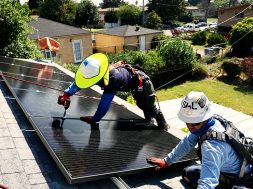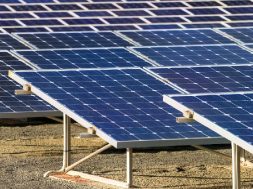
Ernakulam, Aluva and Angamaly railway stations to go solar
KOCHI: Four major railway stations in the district will start running on solar power in six months. Roof top solar panels will be erected in Ernakulam Junction, Ernakulam Town, Aluva and Angamaly railway stations.
A solar plant with a capacity of 250KW will be installed in Ernakulam Junction. Ernakulam Town, Aluva and Angamaly railway stations will have solar plants with a capacity of 200KW, 150KW and 50KW, respectively.
The Ernakulam Town railway station will run fully on solar power since it consumes less power compared to the Ernakulam Junction railway station.
Authorities have started to replace asbestos sheets with galvalume roofing tiles over platforms in Ernakulam Junction to set up the solar panels.
As many as 19 railway stations, including four in Ernakulam, have been identified for solar power generation under the Trivandrum Division.
“The power generated from a 250KW solar plant will meet only one-third of our requirement at the Ernakulam Junction. Currently, we use 6,000 units of energy daily at the station. If operated for eight hours, the 250 KW plant can generate up to 2,000 units of energy. We are planning to install solar plants in four stations within six months,” said an electrical engineer at the Ernakulam Junction.
Currently, the Trivandrum Division of Southern Railway buys power from the Kerala State Electricity Board (KSEB).
“The railways is not investing in the solar project. We had invited a global tender and the New-Delhi based Azure Power has been picked up for executing the project. It will install the solar system on its own and we will have to pay only for the power generated. As of now, we buy electricity for Rs 6.35 per unit from high tension connection from the KSEB’s high-tension lines. The Angamaly station pays Rs 10 per unit since we get power from a low-tension connection. From Azure Power, we can get power at Rs 4 per unit, helping us to save Rs 2.35 in Ernakulam Junction, said an official.
The project is bidirectional as the generated power will be used by the KSEB at day and given back at night.
Though the move is to tap non-conventional energy, health experts also welcomed the move since asbestos sheets pose serious health hazard. “Asbestos fibres pose serious health issues to people who are continuously exposed to them. It can even cause lung cancer if one is exposed to them for 20 to 30 years. Galvalume sheets do not have any such health issues,” says Dr Jacob Bay, pulmonologist.















